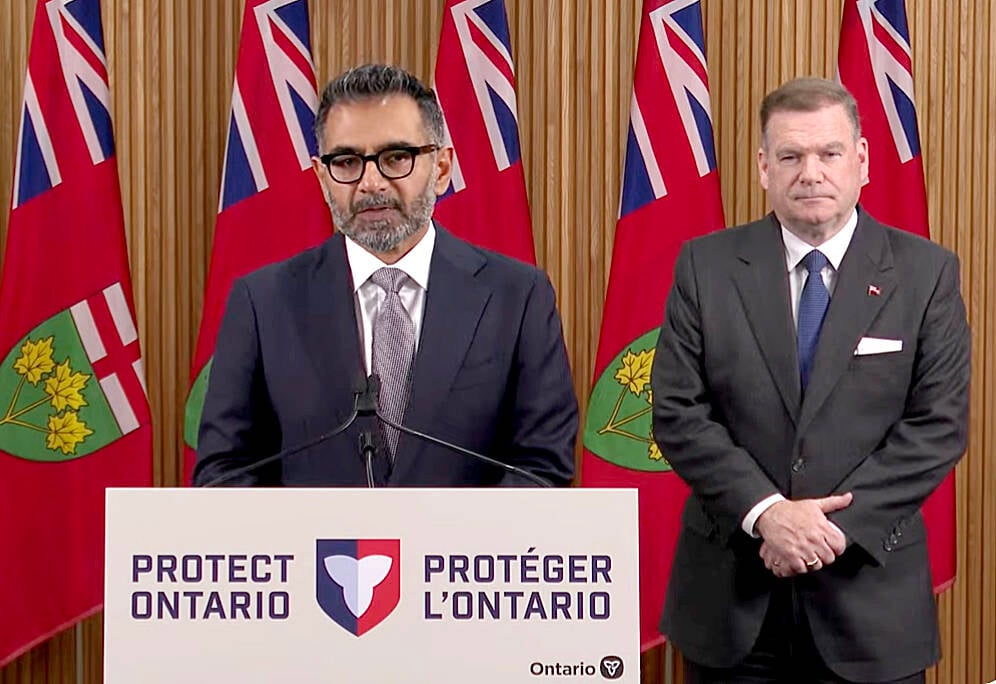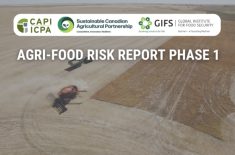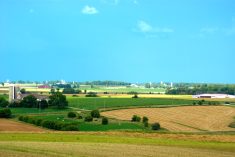Glacier FarmMedia – I suspect farmers of a certain vintage think more about China than they ever expected.
Given the significance that Chinese decisions have on Canadian producers, it is easy to forget the trade relationship between the two countries is less than 30 years old.
Yet here we are, once again curious to know how a decision by the Chinese government will impact Canadian farmers.
This time, the decision was made in partnership with Canada’s single biggest trading partner, the United States.
Read Also

Conservation Authorities to be amalgamated
Ontario’s plan to amalgamate Conservation Authorities into large regional jurisdictions raises concerns that political influences will replace science-based decision-making, impacting flood management and community support.
The signing of the so-called ‘Phase One’ U.S.-China trade deal will impact Canadian producers. How it will do so is less clear.
We know the basics: China has agreed to buy US$200 billion worth of U.S. goods over the next two years, including $40 billion in agricultural goods.
The deal is another sign of the global trade order descending into disorder. The World Trade Organization has already been crippled because the U.S. blocked the appointment of a needed adjudicator after it failed to reach an agreement with member states over how appeals are handled. That has left the WTO with no mechanism to solve trade disputes.
The U.S.-China deal spits in the face of long-standing international trade rules by offering special accommodations to the benefit of only two countries.
In essence, two economic powerhouses have decided to write their own rules by arriving at a managed, bilateral trade deal, while ignoring the WTO and the multilateral trade system it promotes.
Given the significance of this, a panel on the benefits and risks of trade with China at the Canadian Agri-Food Policy Institute’s policy conference was well timed.
One of the panelists, James Rude, an associate professor of agricultural life and environmental sciences at the University of Alberta, was mostly all doom and gloom, suggesting there will be no recovery to the trade order to which we’ve become accustomed.
“We’re going to have much more of a world dominated by managed trade, and the WTO is there as a multilateral check on the abuse by the large players, and we don’t see that check anymore,” he said.
Agri-food consultant Ted Bulyea agreed that the deal moves the world toward managed trade.
“That is not a world that’s going to work well. It’s a world we moved out of, you know, over the last 40 years,” he said, before offering up a more optimistic view than Rude by suggesting the current state of global trade may prompt WTO reforms that bring it back to relevance.
Canada is helping to lead those reforms at the WTO level, which is about all the federal Liberal government has to say when asked for comment on the deal.
Minister of International Trade Mary Ng repeatedly stated the deal was being reviewed and cited efforts at the WTO level when asked for comment.
But the reality in all this is that China is too big of a market for Canadian exporters to ignore, and the impacts of the trade deal could be significant.
Ng and her federal colleagues are aware of this and are no doubt trying to chart a proper path forward.
That is no easy task, given we are essentially left to the whims of Chinese decision makers at a time when flouting international order is becoming increasingly more common.













